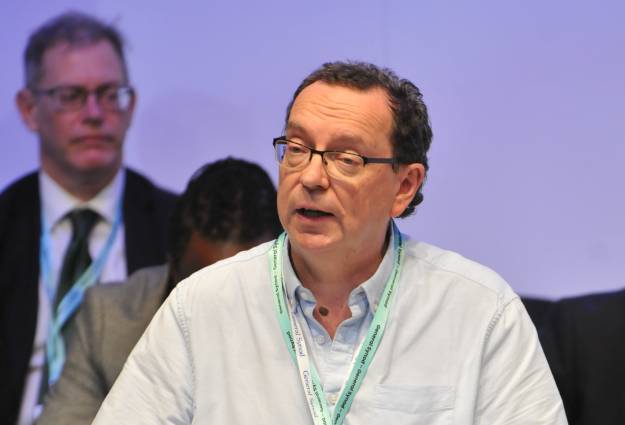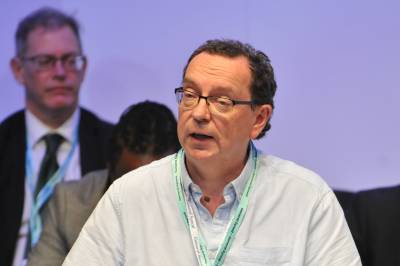26/10/2023
By Bishop Philip Mounstephen
In November, the General Synod, the elected governing body of the Church of England, will meet in London to consider, for the first time, some important legislative proposals for the National Redress Scheme.
For some, this will represent significant progress.
However, I know that for others there is discomfort in the thought of ‘other people’ - bishops and elected clergy and lay people - meeting to deliberate matters that will have a real impact on their lives.
I understand that discomfort, and it is for you that I write this blog post.
A required legislative step along the journey
Legislative ‘measures’ (as they are called) are, by their very nature, technical and legalistic, and an unavoidable reality of Church governance.
But this Measure is not an abstract invention: it’s a direct result of carefully considered, real-world conversations with numerous survivors and victims who have helped the project team to bring the project to this stage. That includes members of our Survivor Working Group, and the many others who have contributed through survivor surveys and other conversations.
It is because of their robust contributions and creative ideas that we have been able to reach this point.
And if this includes you, then I want to say a heartfelt, ‘thank you’.
The Measure will ask General Synod members to commit to our plans, and in doing so we will be able to say with confidence that:
- The Scheme we are developing is truly survivor centred;
- It will be consistent, and all survivors will be treated equitably; and
- The whole Church will share responsibility for redress and participate fairly.
Let me unpack that…
Survivor centred
The whole Project Board and I are deeply committed to ensuring the Redress Scheme is survivor centred and designed in a way that accommodates the wishes of individuals in as simple and straight forward manner as is possible.
So this Measure asks the Church to support our plans to build into the Scheme’s design the flexibility for survivors to receive forms of redress that are most suitable to their circumstances.
And of course support for the Measure will also be a clear indication that the Church agrees that the Scheme should offer prompt, straightforward financial awards.
Consistent and fair
Furthermore, we plan to develop a Scheme that is consistent, equitable and fair.
So, this Measure asks the Church to support the principle that eligible applicants should be able to apply for redress regardless of where they live, the place where the abuse occurred, or their personal circumstances.
It will also ask the Church to agree how financial awards will be structured, with clear bands and criteria, that will consider in a fair and consistent way, the nature and impact of the abuse experienced.
A shared responsibility for the Church
Finally, we want the whole Church to take shared responsibility for redress and to participate and contribute fairly.
So, this Measure asks the Church to support us in our plans to create a financial framework that enables different parts of the Church, such as local churches, cathedrals, bishops, and dioceses, to contribute financially in a way that is sustainable and fair. By doing so the whole Church can begin to show its collective contrition and repentance for its past failures in safeguarding.

"Bringing this Measure to General Synod is a significant milestone that highlights the progress we are making along the journey."
Much more work to do
There is always a sense of anticipation ahead of any General Synod, and for me that sense is heightened further by this Measure, because I know that for survivors, the Scheme cannot arrive soon enough.
Bringing this Measure to General Synod is a significant milestone that highlights the progress we are making along the journey. But there is much more work to be done before we can launch the National Redress Scheme.
As I have said in a previous blog post, while I want to open the Scheme to applicants as soon as is possible, it is vital that we get this right: not doing so would only undermine the credibility of the Scheme, which benefits no one.
However this Measure lays the groundwork for further detailed policy work over the coming months and is a necessary step in the process towards the goal of getting in place a Redress Scheme which is robust, for purpose and – above all else – truly survivor focussed.


